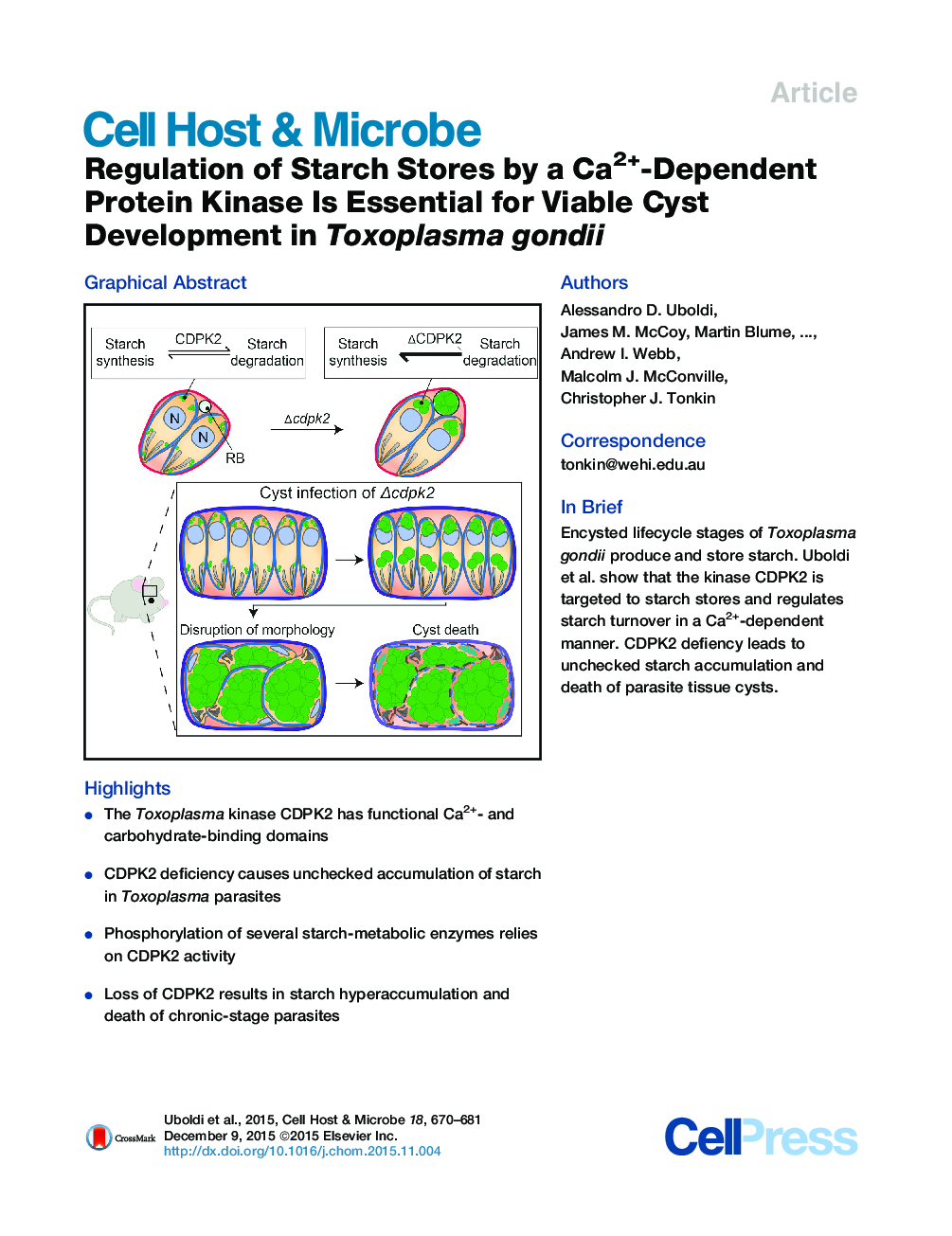| Article ID | Journal | Published Year | Pages | File Type |
|---|---|---|---|---|
| 4360902 | Cell Host & Microbe | 2015 | 12 Pages |
•The Toxoplasma kinase CDPK2 has functional Ca2+- and carbohydrate-binding domains•CDPK2 deficiency causes unchecked accumulation of starch in Toxoplasma parasites•Phosphorylation of several starch-metabolic enzymes relies on CDPK2 activity•Loss of CDPK2 results in starch hyperaccumulation and death of chronic-stage parasites
SummaryTransmissible stages of Toxoplasma gondii store energy in the form of the carbohydrate amylopectin. Here, we show that the Ca2+-dependent protein kinase CDPK2 is a critical regulator of amylopectin metabolism. Increased synthesis and loss of degradation of amylopectin in CDPK2 deficient parasites results in the hyperaccumulation of this sugar polymer. A carbohydrate-binding module 20 (CBM20) targets CDPK2 to amylopectin stores, while the EF-hands regulate CDPK2 kinase activity in response to Ca2+ to modulate amylopectin levels. We identify enzymes involved in amylopectin turnover whose phosphorylation is dependent on CDPK2 activity. Strikingly, accumulation of massive amylopectin granules in CDPK2-deficient bradyzoite stages leads to gross morphological defects and complete ablation of cyst formation in a mouse model. Together these data show that Ca2+ signaling regulates carbohydrate metabolism in Toxoplasma and that the post-translational control of this pathway is required for normal cyst development.
Graphical AbstractFigure optionsDownload full-size imageDownload high-quality image (339 K)Download as PowerPoint slide
